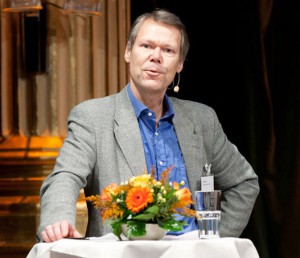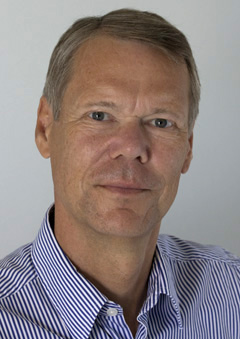Per Binde is associate professor of social anthropology, I am almost fully retired but associated with the Deparment of Public Health Siences, University of Stockholm, Sweden. For many years until 2021, I worked at the University of Gothenburg, at the research center CEFOS and the School of Global Studies.
I have focused on gambling studies since 2001. My interest in gambling is broad, including regulation and problem gambling, but with a focus on the cultural dimensions of gambling and its social contexts.
From an anthropological perspective, I reject views of gambling as driven by a culturally degenerate craving for superficial entertainment, greed and materialism, and irrational or distorted beliefs about the chances of winning. Such views are too often voiced in the public debate and color also some academic works on gambling. Gambling is no more or less trivial or irrational than other activities that people chose to engage in. Gambling is part of our culture. Gambling taps into the biological substrates of behavior, evokes powerful psychological processes, and connects with cultural meanings. In this perspective, disordered and excessive gambling emerges as a multidimensional biological, psychological, social and cultural issue.
I was member of the Board of Directors of the Swedish Gambling Authority (Spelinspektionen, formerly Lotteriinspektionen) for seven years (2007 – 2014, vice chairman for five years). I was member of the reference group of the 2008 governmental inquiry on gambling regulation and had the same position in the 2017 governmental inquiry on gambling market re-regulation. I am member of the international advisory board of the Swedish Longitudinal Gambling Studies (Swelogs). In 2019, I received the SNSUS award for excellent and innovative work in the field of problem gambling.
My articles have appeared in academic journals – such as Journal of Gambling Studies, International Gambling Studies, Gaming Law Review, Journal of Gambling Issues, Addiction, International Journal of Mental Health and Addiction, Anthropological Quarterly and EPD: Society and Space – as well as in edited volumes from Routledge, Earthscan, University of Nevada Press and other publishing houses. I have written two book-size reports on gambling advertising (in Swedish); one overview and one empirical study based on interviews with problem gamblers. My in-depth study of a mutual support group for young problem gamblers is presented in a book in Swedish and articles in English. My most recent work has been mostly about crime and problem gambling.
Prior to studying gambling, my research included: symbolism, ritual and myth relating to the human body in South Italian cultural tradition (doctoral thesis); the symbolic landscape of the city of Rome; and risk perception, risk communication and siting controversy in large scale infrastructure projects. A full list of my academic publications is available here: Per Binde – Academic publications.
My book Bodies of Vital Matter was in 2001 awarded one of the Giuseppe Pitrè – Salvatore Salomone Marino International Prizes for Demo-ethno-anthropological Studies. The Pitrè Prizes were at that time annually offered by the Centro Internazionale di Etnostoria of Palermo, in cooperation with a number of other academic organizations and the City of Palermo. To read more about this award-winning book on Italian culture, click here.
Read a newspaper article about my research (in Swedish, 2010).
Read a magazine article about my research (in Swedish, 2015).
Disclosure of conflict of interest
- I have no current or past affiliation with the gambling industry.
- All my research has been financed by the Swedish state, independent research councils, and public benefit funds and organizations (except for a minor grant in 2014, from the RGT in the UK, for writing a research review).
- Consulting only for Swedish and Norwegian governmental agencies.
- I have presented my research to many organizations and stakeholders, including at events organized by gambling companies. This is part of my “public outreach” responsibilities at the university. I have received reimbursement for travel expenses but never requested speaking fees.


